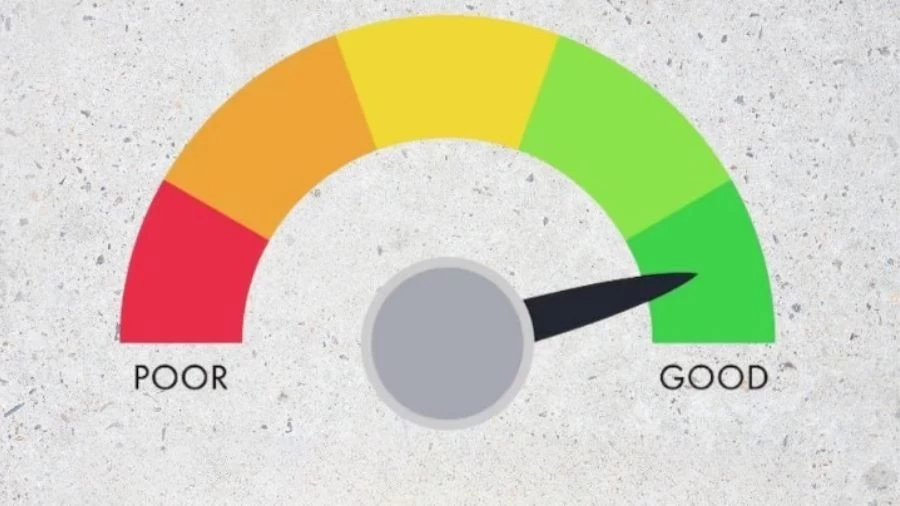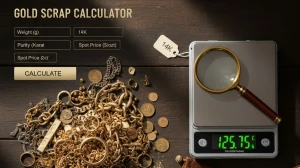
How to Improve FICO Score? What is the FICO Score?
To improve your FICO Score, maintain a diverse credit mix, ensure timely payments, and manage credit responsibly by keeping balances low and avoiding excessive new credit applications.
by Kowsalya
Published Aug 07, 2023 | Updated Dec 21, 2023 | 📖 6 min read
What is the FICO Score?
A FICO Score is a three-digit number derived from your credit reports, aiding lenders in assessing your likelihood to repay a loan, impacting borrowing limits, repayment terms, and interest rates. Serving as a summary of your credit history, it evaluates factors like credit duration, available credit, credit utilization, and payment punctuality.
FICO Scores facilitate swift and consistent lending decisions, allowing fair access to credit based on your financial behavior, emphasizing timely payments, responsible debt management, and prudent credit choices. Introduced by the Fair Isaac Corporation 30 years ago, FICO Scores replaced varied and potentially biased credit scoring methods, promoting fairness in credit assessment.
How to Improve FICO Score?
Improving your FICO score involves maintaining a diverse mix of credit accounts and a stellar payment record, while also keeping credit card balances comfortably below their limits, aiming for a utilization ratio below 30%.
Negative actions like maxing out credit cards, late payments, and frequent new credit applications can lower your score. Regularly checking your credit report for errors, with the opportunity to obtain one free report annually from major credit bureaus, ensures accuracy and allows for timely corrections.
Are Credit Scores and Fico Scores the Same?
While "Credit Scores" and "FICO Scores" are often used interchangeably, they are not exactly the same. "Credit Scores" is a broader term encompassing various scoring models, while "FICO Scores" specifically refer to scores calculated using the Fair Isaac Corporation's model. FICO Scores are widely used in credit assessments, but there are other scoring models with different algorithms that lenders may also consider.
Where Can You Get Your FICO Score?
Unlocking your FICO® score for free is possible through various avenues, collaborating with over 200 financial institutions. From Discover's Credit Scorecard to American Express, Citibank, Bank of America, credit unions, and Ally Bank, explore six accessible routes to check your FICO® scores without impacting your credit negatively.
Navigate the diverse options and empower yourself with essential credit insights. To obtain your FICO® score for free, you have several options:
Discover Credit Scorecard
- Regardless of being a Discover customer, this program allows access to your FICO® credit score without affecting your credit with a hard inquiry.
American Express® Credit Cards
- Cardholders can access their free FICO® score and 12 months of score history based on the Experian® credit report through their online American Express account.
Citibank® Credit Cards
- Select Citi cards offer free FICO® scores, derived from Equifax® credit reports and updated monthly.
Bank of America
- Eligible cardholders gain free monthly access to their FICO® score, based on TransUnion® credit reports, accompanied by informative charts.
Credit Unions
- Some credit unions, such as Navy Federal Credit Union and DCU Credit Union, provide free FICO® scores, offering an alternative to credit card options.
Ally Bank
- If you're in the process of buying a new car, Ally Bank provides a free FICO® score through Ally Auto Online Services or the Ally Auto Mobile Pay app.
What is the Highest FICO Score You Can Have?
The highest credit score achievable is 850, as per the most common FICO® and VantageScore® credit models. While aiming for a perfect credit score is commendable, it's important to note that lenders often don't distinguish between scores in the 'exceptional' range of 800 to 850.
According to Experian®, a score above 760 could already qualify you for the best interest rates, emphasizing that maintaining healthy credit habits is crucial for favorable credit outcomes.
How Often is the FICO Score Updated?
Credit scores generally update at least once a month, though the frequency may vary based on your specific financial circumstances. Updates occur when there are changes in the information contained within your credit reports, which serve as the basis for calculating credit scores. Credit reports summarize your financial behavior, encompassing details like credit accounts, payment history, available credit, and recent credit inquiries.
The reporting of information to the three major credit reporting agencies—Equifax, TransUnion, and Experian—is voluntary, and not all lenders report regularly or to all agencies. While many lenders report monthly, the exact timing varies, often tied to billing cycles or statement dates. Consequently, credit score updates depend on how frequently lenders report new information, emphasizing the importance of checking your credit score regularly to track changes.
How is the FICO Score Calculated?
The following categories collectively contribute to the comprehensive assessment of an individual's creditworthiness, with each factor playing a specific role in shaping the final FICO Score. The FICO Score is calculated based on several key categories, each carrying a specific weight:
|
Categories |
Weight in Calculation |
Details |
|
Payment History |
35% |
Timely payments positively impact the score, while late payments have a negative effect. |
|
Amounts Owed |
30% |
Using a significant portion of available credit may suggest overextension, impacting the score. |
|
Length of Credit History |
15% |
Factors include the age of the oldest and newest accounts, average age, and time since last use. |
|
Credit Mix |
10% |
FICO Scores consider diversity in credit types, including credit cards, loans, and mortgages. |
|
New Credit |
10% |
Opening multiple credit accounts in a short period may represent a higher risk and affect the score. |
Payment History (35%)
This category assesses whether you've paid past credit accounts on time, serving as the most crucial factor in determining a FICO Score. Timely payments lower risk, positively impacting the score.
Amounts Owed (30%)
While having credit accounts and owing money isn't inherently negative, using a significant portion of available credit may suggest overextension, potentially leading to a lower FICO Score.
Length of Credit History (15%)
While not a prerequisite for a good score, a longer credit history is generally positive. Factors considered include the age of your oldest and newest accounts, the average age of all accounts, and the time since specific accounts were last used.
Credit Mix (10%)
FICO Scores evaluate the diversity of your credit portfolio, including credit cards, retail accounts, installment loans, finance company accounts, and mortgage loans. It's not necessary to have one of each.
New Credit (10%)
Opening multiple credit accounts in a short period is seen as a higher risk, particularly for individuals with a limited credit history. Research indicates that this behavior may pose an increased risk of default.
How to Improve FICO Score - FAQs
1. What is a FICO score?
A FICO score is a numerical representation used by lenders to assess creditworthiness based on credit history and repayment behavior.
2. What is considered a good FICO score?
A FICO score of 690 to 719 is generally considered good credit.
3. How is the FICO score calculated?
FICO scores are determined by analyzing factors like payment history, credit utilization, credit mix, length of credit history, and new credit accounts.
4. How can I improve my FICO score?
Improve your FICO score by paying bills on time, maintaining low credit utilization, and addressing delinquencies on your credit report.
5. Which FICO score do mortgage lenders use?
Mortgage lenders typically use FICO Score 2, FICO Score 5, or FICO Score 4 when evaluating mortgage applications.
6. How often is the FICO score updated?
FICO scores are updated periodically, depending on changes in credit history and new data from credit bureaus.




